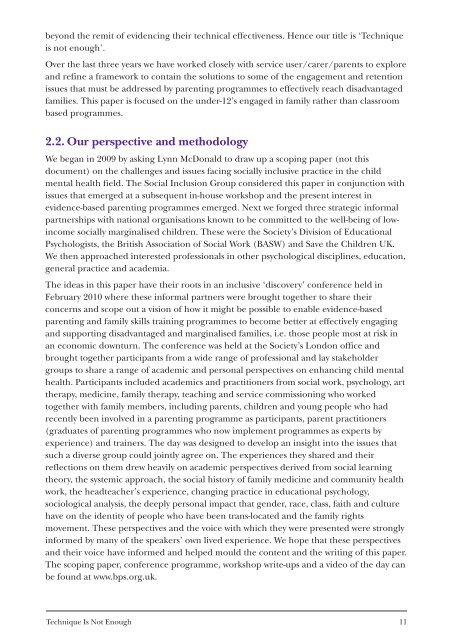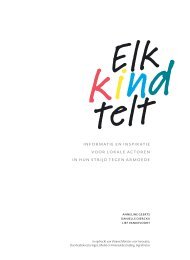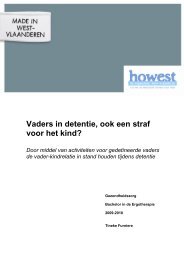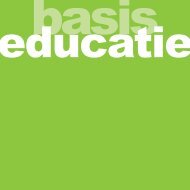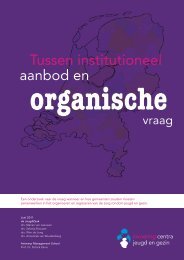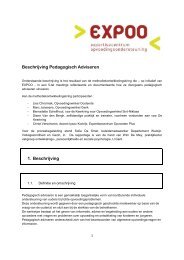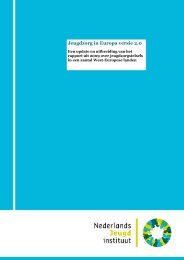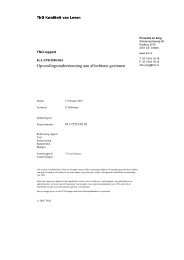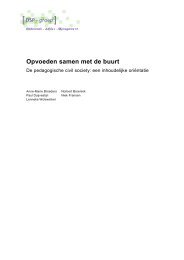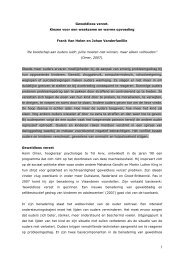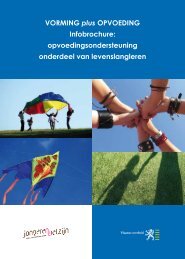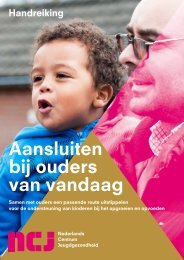Technique Is Not Enough (TINE) - British Psychological Society
Technique Is Not Enough (TINE) - British Psychological Society
Technique Is Not Enough (TINE) - British Psychological Society
- No tags were found...
Create successful ePaper yourself
Turn your PDF publications into a flip-book with our unique Google optimized e-Paper software.
eyond the remit of evidencing their technical effectiveness. Hence our title is ‘<strong>Technique</strong>is not enough’.Over the last three years we have worked closely with service user/carer/parents to exploreand refine a framework to contain the solutions to some of the engagement and retentionissues that must be addressed by parenting programmes to effectively reach disadvantagedfamilies. This paper is focused on the under-12’s engaged in family rather than classroombased programmes.2.2. Our perspective and methodologyWe began in 2009 by asking Lynn McDonald to draw up a scoping paper (not thisdocument) on the challenges and issues facing socially inclusive practice in the childmental health field. The Social Inclusion Group considered this paper in conjunction withissues that emerged at a subsequent in-house workshop and the present interest inevidence-based parenting programmes emerged. Next we forged three strategic informalpartnerships with national organisations known to be committed to the well-being of lowincomesocially marginalised children. These were the <strong>Society</strong>’s Division of EducationalPsychologists, the <strong>British</strong> Association of Social Work (BASW) and Save the Children UK.We then approached interested professionals in other psychological disciplines, education,general practice and academia.The ideas in this paper have their roots in an inclusive ‘discovery’ conference held inFebruary 2010 where these informal partners were brought together to share theirconcerns and scope out a vision of how it might be possible to enable evidence-basedparenting and family skills training programmes to become better at effectively engagingand supporting disadvantaged and marginalised families, i.e. those people most at risk inan economic downturn. The conference was held at the <strong>Society</strong>’s London office andbrought together participants from a wide range of professional and lay stakeholdergroups to share a range of academic and personal perspectives on enhancing child mentalhealth. Participants included academics and practitioners from social work, psychology, arttherapy, medicine, family therapy, teaching and service commissioning who workedtogether with family members, including parents, children and young people who hadrecently been involved in a parenting programme as participants, parent practitioners(graduates of parenting programmes who now implement programmes as experts byexperience) and trainers. The day was designed to develop an insight into the issues thatsuch a diverse group could jointly agree on. The experiences they shared and theirreflections on them drew heavily on academic perspectives derived from social learningtheory, the systemic approach, the social history of family medicine and community healthwork, the headteacher’s experience, changing practice in educational psychology,sociological analysis, the deeply personal impact that gender, race, class, faith and culturehave on the identity of people who have been trans-located and the family rightsmovement. These perspectives and the voice with which they were presented were stronglyinformed by many of the speakers’ own lived experience. We hope that these perspectivesand their voice have informed and helped mould the content and the writing of this paper.The scoping paper, conference programme, workshop write-ups and a video of the day canbe found at www.bps.org.uk.<strong>Technique</strong> <strong>Is</strong> <strong>Not</strong> <strong>Enough</strong> 11


